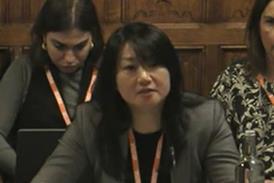Decisions filed recently with the Law Society (which may be subject to appeal)
David Johnson
Application 12266-2021
Admitted 2002
Hearing 23 December 2021
Reasons 20 January 2022
The SDT ordered that the respondent should be struck off the roll.
From in or around 2011 to 15 January 2018, having received payment for settled cases, the respondent had failed to pay outstanding professional disbursements on those cases and had instead caused or allowed the money to be used for the running of the firm, thereby breaching rules 7.1 and 17(1)(b) of the SRA Accounts Rules 2011, and principles 2, 6, 8 and 10 of the SRA Principles 2011. He had acted dishonestly.
From in or around 2011 to 15 January 2018, having received payment for settled cases, he had failed to pay outstanding non-professional disbursements on those cases and had instead caused or allowed the money to be used for the running of the firm, thereby breaching principles 2, 6 and 8. He had acted dishonestly.
Between 30 June 2017 and 15 January 2018, he had failed to keep accurate accounting records, thereby breaching rule 29.1 of the rules, and principle 8.
On 6 July 2017, he had given an undertaking to repay a business loan by 8 May 2018, and had failed to repay the loan, thereby breaching the undertaking, and in so doing he had failed to achieve outcome 11.2 of the SRA Code of Conduct 2011, and had breached principles 2 and 6.
The respondent admitted each of the allegations, and that he had acted dishonestly.
The parties had invited the SDT to deal with the allegations against the respondent in accordance with a statement of agreed facts and outcome.
The SDT had reviewed all the material before it and was satisfied on the balance of probabilities that the respondent’s admissions had been properly made.
The respondent’s admitted conduct included lack of integrity and dishonesty.
The respondent knew that failure to pay creditors, and the use of money allocated to those creditors to otherwise support the running of the firm was dishonest.
Public confidence in, and the reputation of, the profession required no lesser sanction than that the respondent be removed from the roll.
The respondent was ordered to pay costs of £7,500.
Joseph Obukowho Omorere
Application 12242-2021
Admitted 2002
Hearing 8 December 2021
Reasons 20 January 2022
The SDT allowed the applicant’s appeal under section 44E of the Solicitors Act 1974 and revoked the decision of the adjudication panel of the SRA dated 30 July 2021 to uphold the decision of the adjudicator dated 26 April 2021.
The applicant appealed against a decision of an adjudication panel to uphold the decision of the adjudicator dated 26 April 2021 that he should be rebuked and should pay costs in the sum of £300.
Where a finding of professional misconduct was made, it was necessary to set out in clear terms why that was the case. Any finding of professional misconduct was a serious matter for the individual concerned and fairness dictated that where such a finding was made, the basis for it was clear in order that it could be understood and, if appropriate, challenged. In the present case the respondent had not adequately set out why it was that, in circumstances where the appellant had lodged an appeal, applied for a stay, continued to engage with the court, sought and obtained a variation and arranged to make payments, he was guilty of professional misconduct.
The SDT found, on the balance of probabilities, that the adjudication panel had made a serious procedural error by failing to give adequate consideration to the basis of the adjudicator’s finding of professional misconduct and by failing to give sufficient reasons or explanations of any consideration that might have been given to that important question.
It therefore allowed the appeal and revoked the decision of the adjudication panel to uphold the decision of the adjudicator.
The SDT made no order for costs.
Jennifer Mordi
Application 12259-2021
Hearing 17 December 2021
Reasons 13 January 2022
The SDT refused the applicant’s application for the removal of conditions imposed by the SRA on 12 July 2019.
The applicant had clearly and repeatedly stated that she accepted that the order imposing the conditions had been properly made. She sought the removal of the order on the basis that it was regulatory and not penal and the reasons for its imposition no longer applied. She had sought to adduce evidence from the intervening three years to seek to make good her submission.
Section 43(2) of the Solicitors Act 1974 stated that either the [Law] Society (now the SRA) or the SDT might impose an order restricting the employment and payment of a non-solicitor in a legal practice. Section 43(3) clearly stated that, as it had not made the order, the SDT’s power was purely to review it.
The SDT determined that it did not have the statutory authority to determine the applicant’s revocation application in the circumstances in which it had been made, and accordingly it refused the applicant’s application.
The applicant was ordered to pay costs of £780.
Qunmber bin Ehsan
Application 12267-2021
Admitted 2007
Hearing 26 January 2022
Reasons 22 February 2022
The SDT ordered that respondent should be struck off the roll.
While in practice as a solicitor, having entered into a retainer agreement with client A, the respondent had failed to abide by the terms of the agreement, thereby breaching principles 2, 4, 5, 6 and 10 of the SRA Principles 2011. He had acted dishonestly.
He had failed to cooperate with an investigation by the Legal Ombudsman in relation to client A’s complaint against him, thereby breaching principles 2, 6 and 7, and failing to achieve outcome 10.6 of the SRA Code of Conduct 2011.
He had failed to cooperate with an investigation by the applicant in relation to client A’s complaint against him, thereby breaching principles 2, 6 and 7 of the 2011 Principles, failing to achieve outcome 10.6 of the code, and breaching principles 2 and 5 of the SRA Principles 2019, and paragraphs 7.3 and 7.4 of the SRA Code of Conduct 2019.
The respondent was fully responsible for his actions, with a high degree of culpability. Client A had been caused a direct financial loss of at least £10,000 and had incurred the costs of a fruitless trip to Spain. She had also suffered considerable inconvenience and distress as a result of the respondent’s conduct.
The misconduct found proved was aggravated by the fact that the allegations included dishonest conduct.
The findings against the respondent, including dishonesty, required that the appropriate sanction was strike-off from the roll.
The respondent was ordered to pay costs of £21,500.
Raj Rajan Mariaddan
Application 12218-2021
Admitted 1995
Hearing 18-21 October 2021, 25 January 2022
Reasons 21 February 2022
The SDT ordered that the respondent should be struck off the roll.
While in practice at John Street Solicitors LLP, the respondent had caused or allowed misleading information to be provided to firm A, a law firm, to the effect that he did not have a bank account in his name; that his only income was disability living allowance; that he had not earned any income for at least two years or words to that effect; and that he had been unemployed since 2015. He had thereby breached principles 2 and 6 of the SRA Principles 2011, and principles 2, 4 and 5 of the SRA Principles 2019. He had acted dishonestly.
On an application for a professional indemnity renewal he had caused or allowed misleading information to be provided to company B, an insurance broker, in that he had indicated on the Professional Indemnity Renewal Form that (i) the firm was not subject to an investigation by the SRA, when both he and the firm were subject to an investigation; (ii) that he had not been made subject to conditions on his practising certificate, when he had held conditional practising certificates, and (iii) he had not been the subject of a costs or penalty order before the SDT when he had, thereby breaching principles 2, 4 and 5 of the 2019 Principles. He had acted dishonestly.
He had failed to have in place valid professional indemnity insurance, thereby breaching rules 2.1 and 4.1 of the SRA Indemnity Insurance Rules 2019, and principles 2 and 7 of the 2019 Principles.
He had continued to practise, including holding client money, without valid insurance, when he knew or should have known that no valid insurance was in place, thereby breaching rules 2.4 and 4.2 of the SRA Indemnity Insurance Rules 2019, and principles 2, 5 and 7 of the 2019 Principles.
The respondent’s culpability for his misconduct was high. His conduct had caused harm to the reputation of the profession.
In view of the serious nature of the misconduct, in that it had involved dishonesty, the only appropriate and proportionate sanction was to strike the respondent off the roll.
The respondent was ordered to pay costs of £30,948.
Philip Ashley Browell
Application 12271-2021
Admitted 1981
Hearing 20 January 2022
Reasons 2 February 2022
The SDT ordered that the respondent should pay a fine of £20,000, and that he should be subject to the following conditions. The respondent might not (i) practise as a sole practitioner or be the sole authorised person who was a manager of an authorised or recognised body; (ii) be a compliance officer for legal practice or compliance officer for finance and administration for any SRA-authorised body, or head of legal practice or head of finance and administration in any authorised non-SRA firm; (iii) act as a sole signatory to any client or office account, or have the power to solely authorise transfers from any client or office account; (iv) practise under regulation 10.2(a) or 10.2(b) of the SRA Authorisation of Individual Regulations; with liberty to either party to apply.
While in practice as a solicitor and director of Browell Smith & Co Solicitors Ltd, the respondent had caused or allowed one or more improper client to office account transfers, thereby breaching principles 2, 4, 6 and 10 of the SRA Principles 2011, and rule 20.1 of the SRA Accounts Rules 2011.
He had caused or allowed the firm to retain residual client balances that were contrary to rules 14.3 and 14.4 of the 2011 rules, thereby breaching principles 4, 6, and 8.
The parties invited the SDT to deal with the allegations against the respondent in accordance with a statement of agreed facts and proposed outcome.
The SDT had reviewed all the material before it and was satisfied on the balance of probabilities that the respondent’s admissions had been properly made.
The respondent had self-reported following advice from his accountant. The improperly withdrawn monies had been replaced in a short space of time, and the misconduct had occurred over a short space of time.
In using client monies as he had, he had caused harm to the reputation of the profession.
A financial penalty of £20,000 adequately reflected the seriousness of his misconduct. Given the nature of that misconduct, it was also necessary to impose restrictions on the respondent’s practice in order to protect the public and the reputation of the profession from future harm by him.
The respondent was ordered to pay costs of £25,000.




























